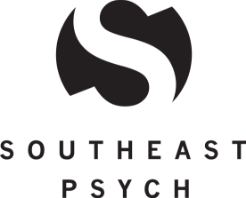Trauma can have a profound impact on a person’s emotional and physical well-being and interpersonal relationships. Whether it stems from a single traumatic event or a series of traumatic experiences, the effects can linger, leading to a number of mental health conditions, and for some people, post-traumatic stress disorder (PTSD). Many individuals with trauma symptoms struggle with flashbacks, anxiety, and emotional distress which disrupts their daily lives.
Thankfully, there are therapeutic approaches designed to help people process and heal from trauma. One of the most effective treatments is Eye Movement Desensitization and Reprocessing (EMDR) therapy. This evidence-based approach helps individuals reduce symptoms of distress, replace negative thought patterns with positive beliefs, and ultimately reprocess traumatic memories to help the brain integrate and process the experience in a healthier way.
What is EMDR Therapy?
Eye Movement Desensitization and Reprocessing (EMDR) therapy is a structured, multi-phase treatment designed to help individuals process distressing memories without becoming emotionally overwhelmed. Unlike traditional talk therapy, EMDR therapy focuses on the brain’s ability to heal itself by reprocessing unresolved trauma in a controlled, therapeutic setting.
How EMDR Works
EMDR therapy uses bilateral stimulation—such as guided eye movements, tapping, or auditory tones—to help the brain reprocess traumatic memories in a way that reduces their emotional intensity. This process allows individuals to remember past events without experiencing the same level or intensity of distress, ultimately shifting their emotional and cognitive responses to something healthier and more productive.
Research has shown that EMDR works by changing how traumatic memories are stored in the brain, making them less disruptive over time. Many individuals report feeling a significant reduction in trauma symptoms after completing EMDR therapy, even if other treatments were previously ineffective.
The Phases of EMDR Therapy
EMDR follows an eight-phase protocol, allowing clients to process trauma safely in a controlled environment, and at their own pace. Here’s what to expect during each phase of EMDR therapy:
1. Treatment Planning and Assessment
Before beginning the reprocessing phase, the therapist gathers information about the client’s history, identifying key traumatic events and current symptoms. This step is crucial in developing an individualized treatment plan.
2. Preparation
Clients are introduced to EMDR techniques, including relaxation exercises and body scan techniques that help them stay grounded during sessions. The goal is to ensure they feel safe and equipped to manage the difficult feelings that can emerge when processing trauma.
3. Assessment of Target Memories
The therapist helps the client identify distressing memories associated with trauma. Clients are taught to recognize negative beliefs that are connected to those memories and work to replace them with more positive beliefs.
4. Reprocessing the Trauma
During these phases, the therapist guides the client through bilateral stimulation while recalling traumatic experiences. Bilateral stimulation allows the brain to reprocess the memory, reducing its emotional intensity and altering its impact on the individual.
Clients often experience a shift in emotions and beliefs through this process. For example, fear and self-blame may be replaced with empowerment and acceptance.
5. Closure and Reevaluation
After completing the reprocessing phase, clients reflect on their progress. They learn how to integrate their new perspectives into daily life, ensuring long-term benefits.
The Benefits of EMDR Therapy for Trauma Recovery
Many individuals who undergo EMDR therapy report life-changing improvements in their emotional and psychological well-being. Some of the key benefits of EMDR therapy include:
1. Reducing trauma Symptoms
Studies show that EMDR therapy is highly effective in treating traumatic stress disorder (PTSD), and by extension other mental health conditions they experience. It helps individuals process memories that once triggered fear, anxiety, and distress, leading to significant symptom relief.
2. Healing Without Extensive Talk Therapy
Unlike traditional trauma-focused cognitive behavior therapy (TF-CBT), EMDR does not require clients to verbally recount every detail of their trauma. This makes it an ideal option for individuals who struggle with discussing painful experiences.
3. Long-Term Relief from Trauma
One of the major benefits of EMDR therapy is its ability to create lasting change. By targeting the root cause of distress, EMDR works to rewire the brain’s response to trauma, promoting long-term healing.
4. Replacing Negative Thought Patterns with Positive Beliefs
Many individuals with PTSD or trauma history struggle with self-blame, guilt, or feelings of unworthiness. EMDR helps clients shift from negative self-perceptions to more positive beliefs, fostering self-compassion and confidence.
5. Improving Emotion Regulation
Trauma can make it difficult to manage emotions, leading to heightened anxiety, fear, anger, and even numbness. Through EMDR, individuals learn how to regulate emotions more effectively, improving overall mental well-being.
Who Can Benefit from EMDR Therapy?
EMDR is widely used to treat post-traumatic stress disorder (PTSD), but it is also effective for a range of mental health conditions, including:
- Childhood trauma and abuse
- Combat-related PTSD
- Anxiety and panic disorders
- Phobias and fears
- Depression linked to unresolved trauma
- Grief and loss
If you’ve experienced traumatic events and are struggling with their emotional impact, EMDR therapy may be a valuable tool for your recovery.
Taking the Next Step Toward Healing
Seeking help for trauma can feel overwhelming, but recovery is possible with the right support. If you’re ready to take the first step toward healing, Southeast Psych is here to support you. Our trauma specialists provide EMDR and other trauma-focused therapeutic approaches to help individuals heal from the past and reclaim their lives.
Contact us today to schedule a consultation. Let us guide you on your journey to better mental health, one session at a time.
